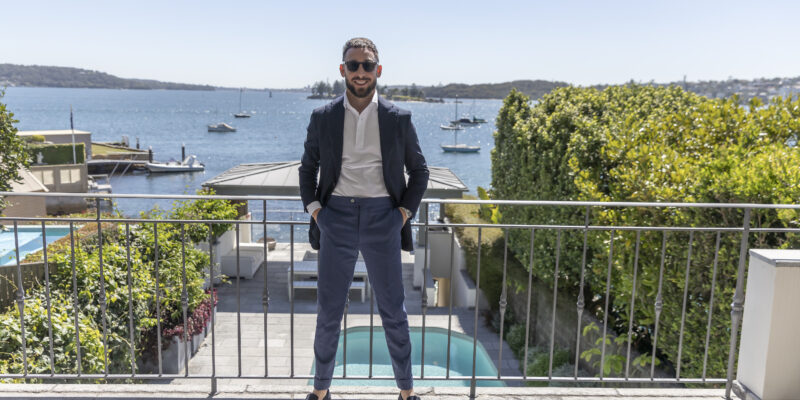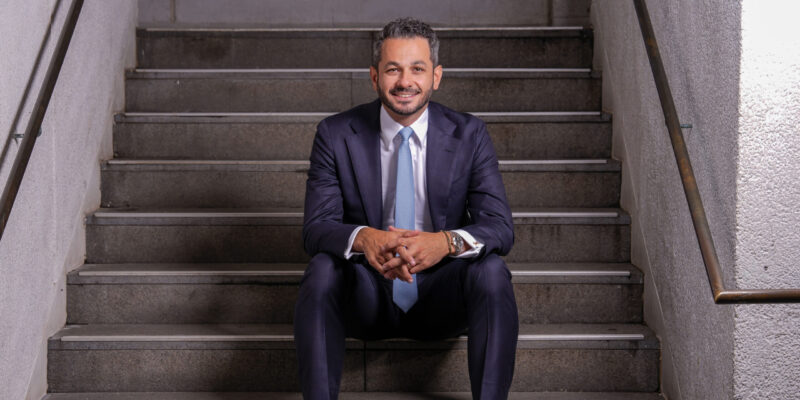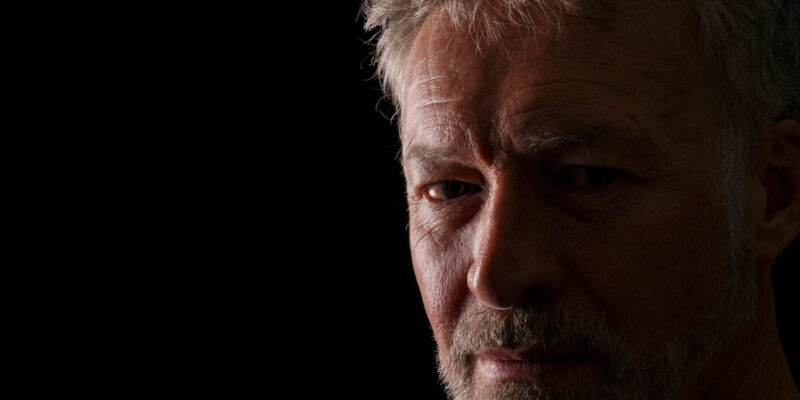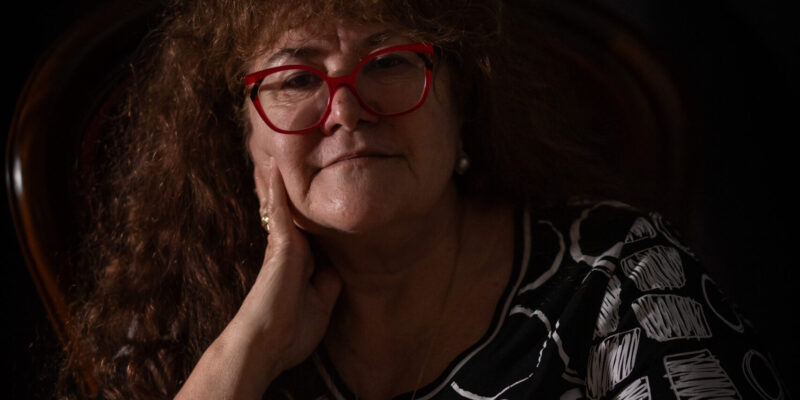Paul Nicolaou: Sydney’s red tape warrior
For Paul Nicolaou, there’s a lot to love about his hometown of Sydney. As executive director of Business Sydney he’s a passionate advocate for development and refurbishment, a sword-wielding enemy of red tape. But he’s also heavily invested in making Sydney a better place for its people, especially the homeless and city workers who can’t afford city rents.
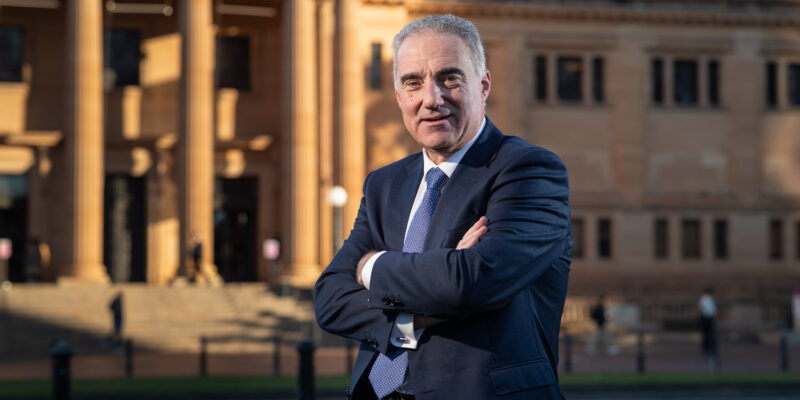
PAUL Nicolaou spends much of his time in boardrooms, media conferences and seminars … but he’s also
happy sleeping under a sheet of cardboard on cold concrete, as a passionate supporter of the annual Vinnies CEO Sleepout.
He’s done it for five years, this June raising $120,000 for homeless programs, more than $500,000 all up.
That’s on top of his day job as executive director of Business Sydney, serving for the past four years as an advocate at federal, state and local levels. “My role is to help business get on with business,” he says.
Lobbying for less red tape, fair regulation, faster decision-making.
Before that, Paul worked with the Australian Chamber of Commerce and Industry, was CEO of the Australian Hotels Association of NSW and NSW President of the Marketing Institute of Australia.
Other positions include senior roles in marketing and fundraising for children’s hospitals, national parks, and the University of NSW … as well as directorships of several charities.
Tackling homelessness is a key part of his big-city vision. “There are over 340 people sleeping rough in Sydney tonight,” he says. “Even police officers sleeping in their cars when they’re on a nine-day roster.”
Nicolaou wants more high-rise in the CBD, with towers soaring well beyond the current 70 or so storeys.
Not just commercial and retail space, but homes for essential workers, like police, firefighters and teachers. “We can’t always be building million-dollar apartments,” he says. “We need to be also looking at providing affordable housing.” They’ve done it in New York and London. Sydney as a mini-Manhattan? Sure, he says. “We’ve only got about 27,000 that live in the Sydney LGA. I want to see it go up to at least 100-200,000.
“Businesses can’t survive if there are not enough workers in the city. We need to have people living in it, working in it. We need to create villages, create communities.”
A sense of community is key to Paul’s upbringing. His parents Costas and Coula were part of the Greek diaspora in Egypt, independently emigrating to Australia in the late 1940s and early 50s.
“They came here with nothing,” he says. “My father worked on the assembly line at General Motors, my mother was a seamstress.”
Paul attended an independent Catholic college, a school with few Greek Australians. “Were you called a wog?” “Yep. You just accepted it. I don’t think it happens much these days. We’re very lucky that we have a society now that is so multicultural.
The benefits are just huge.” Instead of soccer, he played rugby union, joined the Army Cadets and the Scouts. Attended university thanks to Gough Whitlam’s free tertiary education.
Despite benefitting from Labor’s policies on that front, Paul joined the Liberal Party. He unsuccessfully contested the state seat of Ryde in 2003 before exiting politics, deciding he could be more influential on the outside than the inside.
Paul’s efforts to influence city planning don’t end with the CBD. He wants more development in the hubs of North Sydney, Parramatta and Chatswood, linked by Metro or Light Rail. And he’d like to see main roads between those centres refreshed with medium-density housing of say, six to seven storeys.
“We did research and found we could put 35,000 homes along Parramatta Road,” he says. “Currently Parramatta Road is made up of old industrial or retail buildings that are past their use-by date.”
He’s appalled that Sydney has Long Bay Jail sitting on 32 hectares of prime land 14km from the CBD, within easy reach of a light rail extension. And he feels bus depots would be better off underground, their footprints given over to apartments. But Paul doesn’t want development that puts profit over public amenity.
“If we’re going to have high-rise, you can’t not have the social infrastructure like parks, playgrounds, libraries,” he says. “Otherwise, we’re bringing up children who have no need or want for sports, other than their computers or mobile phones.


